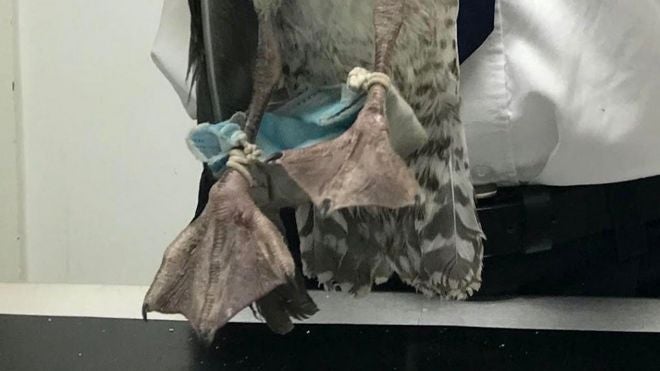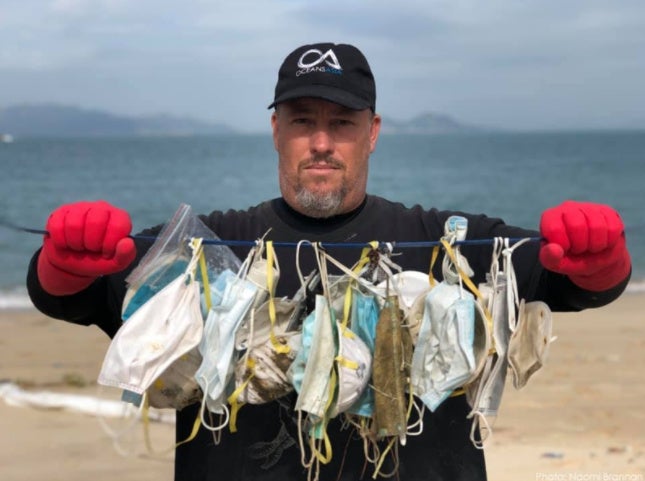After the wearing of face masks in public spaces was made mandatory by the government on 1 August, many have been stocking up on disposable face masks to avoid being fined RM1,000. However, as these masks are only effective on a single-use basis, it can accumulate tons of waste and pose as a threat to wildlife if not disposed of properly.

In an article that was published by BBC last month, a gull in Chelmsford, Essex had to be rescued after its legs got trapped in the elastic straps of a disposable face mask for about a week.
“It’s clear the mask was there for some time and the elastic straps had tightened around his legs as his joints were swollen and sore,” said RSPCA inspector, Adam Jones.

But this isn’t the first case. Unfortunately, the gull is the first of many victims and situations like these aren’t just found in Essex. In mid-March, an environmental group known as OceansAsia, found a whopping total of nearly 70 different types of used masks washed up on a 100m beach stretch in Hong Kong.
“A mask ingested by a local turtle, pink dolphin or finless porpoise could easily become stuck in the digestive system of this animal, thereby killing it,” said the Director of Research at OceansAsia, Teale Phelps Bondarof, to Energy Live News.
So what can you do to dispose of your masks properly?
In an illustrated animation created by @swon.studios, those who wear disposable masks are advised to cut the straps to prevent more animals from suffering a similar or worse fate as the seagull.
Aside from snipping the straps of your mask, Greenmatters also advises people to discard the mask in a secure bin. “If you wear a single-use face mask, make sure to dispose of it properly. Never litter it on the ground, and try not to throw it away in outdoor trash or set it down outside, as the wind could pick it up and blow it away…if not, just make sure you are throwing your masks away in a trash can where the contents will be securely tied up for trash day.”
Alternatively, you could also invest in a fabric mask to reduce the wastage that disposable masks cost the environment. However, do ensure that you abide by the guidelines specified by KKM before you decide whether fabric masks are for you!
Also read: Fabric Masks Or 3-Ply Masks? KKM Releases Info On What Masks Are Suitable For You







































